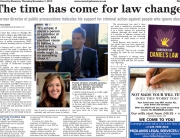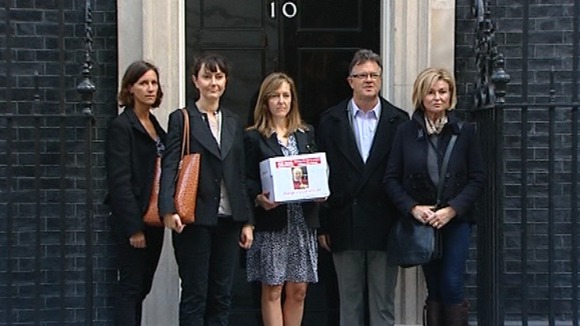The case of Daniel Pelka, killed by his mother and her partner after a tragically short life filled with violence and cruelty, has walked with me into my quiet hours, and I imagine, many of yours.
I spent much of Friday talking to the media about the case. Rightly, most interviews I participated in did not demand that heads should roll, rather, there was broad agreement that we must wait for the Serious Case Review for details of who saw what, when, who raised issues to whom, and who acted – or did not act – to keep Daniel safe, and in the end, alive.
Daniel’s case was described as similar to those we quote to sum up the horror of a child dying in carers’ hands. Four names: Jasmine Beckford; Victoria Climbie; Kyra Ishaq; and Peter Connelly were cited as awful examples from previous years, along with the question, ‘how could this happen again, if lessons have really been learned?’
The simplest answer is that, legislate as we might, practise as we do to keep so many children safe and well, the capacity of the human heart and mind for cruelty is – in Daniel’s case obviously, overwhelmingly greater than – its capacity for kindness and compassion.
The indications from evidence heard in court are that Daniel’s mother, who was directly involved in his injuries, torture and death, told plausible tales about his state. These were believed by social workers, neighbours, teachers, medics and the police as well as many of the agencies whose representatives sit on the Local Safeguarding Children Board and the locality’s Children’s Trust. We have heard about such outward compliance, hiding what was really going on until it was too late for the child, before, and children died then too.
I was asked about the recommendation by Professor Eileen Munro in her review of child protection reform that early intervention and prevention should be made statutory requirements. It is clear localities are faced with huge dilemmas: of course it’s cheaper and more effective to get in early, but there will always be crises and these too need to be covered. What would statutory early intervention look like, and how would it be policed? How could geographical differences in rural and urban areas be catered for? What would increasingly cash strapped services stop doing in order to fund this early help? What are the Munro Pilots showing the system and how do we learn from them, as well as from crises like Daniel’s?
These are dense and complex questions, with layered and continuously shifting solutions. The conversations are necessary, but one size will never fit all circumstances. The search for easy answers this time round is as seductive as ever, but must be approached with caution and professionalism, not a knee jerk reaction.
For me as Children’s Commissioner, the learning boils down to this.
For me as Children’s Commissioner, the learning boils down to this. Children have an absolute right, in UK law as well as in the UN Convention on the Rights of the Child, to be protected from all neglect, violence and abuse, from whichever quarters those horrors may come. This means there is a matching, absolutely binding expectation on every adult in contact with a child – parent, neighbour, teacher, nurse, social worker, whoever – that such protection is given, whatever the cost to relationships between services that might follow if somebody presses their worries home. Not acting to ensure a child his or her rights, is in itself a form of choice, itself an action, by the adult who does not act. As simple, and as challenging, as that.
Taken from www.childrenscommissioner.gov.uk





